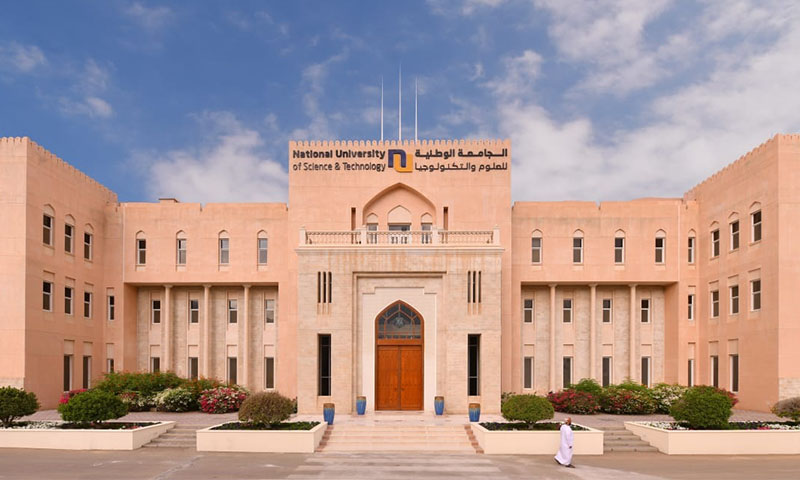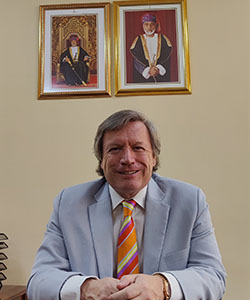Dr Simon Jones is Vice-Chancellor of the National University of Science and Technology. He is a UK citizen born in Llanelli, Wales. He holds Bachelor’s Master’s and 2 Doctoral degrees in the fields of Microelectronics and Computer Engineering. He held the ARM/Royal Academy of Engineering Research Chair in Embedded Microelectronic Systems at Loughborough University.
COVID is a reality. We acknowledge its profound effects. We have mitigation strategies. Let’s think about the Post-COVID future as well. The challenge is to plan a new vision for our institutions and to adapt the style of leadership accordingly.
There are only 4 duties of a university leader:
- To frame, deliver and repeat a coherent message about the purpose of the institution that resonates with stakeholders.
- Have the acumen not to jump down every hole that is put in front of you.
- To oversee a team that plans and implements the necessary changes.
- Through your everyday interactions, embody the values of the institution.
Seen through this lens, the challenge post-COVID is to reinterpret these duties in a landscape where students, agencies and governments are questioning their own needs and relevance and setting new requirements. In this article, I make a case for a distinctive style of leadership in the coming decade.
National University of Science and Technology
The National University of Science and Technology (NU) was formed in 2018 as a merger of three existing colleges with histories dating back to 1996. NU operates under a licence from the Ministry of Higher Education, Sultanate of Oman. It is a private non-profit university.
It has degree awarding powers and where relevant, degrees also receive international program accreditation. We work closely with 3 academic affiliates: 2 in the United States (Universities of West Virginia and South Carolina), 1 in the United Kingdom (Glasgow)).
In 2020 NU has close to 4000 students and delivers MD, Masters and Bachelors programs in Medicine, Pharmacy and Engineering. The majority of students take a preliminary year at our School of Foundation Studies which eases the transition between an Arabic-language school system and an English-language university.
The majority of students speak English as a second language. The students are primarily (80%) Omani with the remainder coming from the region. Iraqi, Egyptian, Iranian and Bahraini students account for around 50% of our international cohorts. The faculty originates mostly from Oman and South Asia, again with English as a second language.
The Message
“The principle of being as prudent in success as steady in adversity cannot be forgotten,” Fidel Castro, Retirement Speech, 2008.
Access to higher education is no longer a privilege but a choice. Indeed, it is often approached as a consumer choice. People are sophisticated and nuanced consumers in 2020. They understand Brand and Symbol, and they expect a university to embrace it. Brand consultants will tell you that at the core of the brand is authenticity and the challenge of contemporary leadership is to be able to take the underpinning authenticity of the institution and convey it in a way which engages with your stakeholders. A vision and mission statement sounds very old-fashioned in that context. Authenticity in 2020 is more a continued negotiation with constituencies than a settled statement of purpose.
Given this constantly evolving understanding of authenticity, the challenge of leadership is to simplify to its ousia (essence) what the institution stands for while recognising the need to vary its delivery. Syncopation varies, but the melody persists.
In our institution, the ousia is:
- Career acceleration – a National University degree provides the skills and knowledge to make fast progress.
- Purposeful research – the research we do is defined by the social and economic needs of Oman.
- Shared Journey – we travel together, and everyone has a part to play in our success.
For students, this is articulated through examples of successful alumni, spinout companies and the sustained engagement of senior members of the university with students.
For industry and government, this is articulated through well-prepared graduates, research that can be directly applied and a sense that if you are a partner of the university, the whole university is there for you.
These three values are emphasised in engagements with our stakeholders. It is sometimes reflected in unexpected ways (for example the proficiency of our engineering students in English is often remarked upon).
Instagram and Twitter are our major social media routes, and we engage with these stakeholders using the same 3 elements but in an appropriate tone and register. University Presidents must no longer be distant figures. Influence is obtained by participation, not authority. Get off the podium and join the debate.
Acumen
“If you are facing the right way, all you have to do is keep on walking,” Joseph Goldstein, The Experience of Insight, 1976.
Mistakes are highlighted particularly in Higher Education because each constituency judges institutional leadership idiosyncratically, considers its position as principled and sees its right to opine publicly on the performance of campus leaders as sacrosanct. That is unlikely to change. It is also a special challenge for expatriate leaders in this region. The expatriate leader needs counsel. Specifically, counsel that is prepared to speak truth to power.
Expatriate leadership in the region is usually savvy when it comes to avoiding mistakes within the university, after all, that’s why they hired you. Responding to the legitimate concerns of external stakeholders in a way which balances local culture and institutional mission is far more likely to be the cause of problems. The most effective way of doing this is by having a deputy who comes from the region. Furthermore, you may well need to cede more influence and decision making power to your deputy than you would at home. I’ve seen universities where they have a government relations department to handle this. It helps but is not optimal as it can separate the leader from the community. Preferable is a competent Deputy who can act as your guide and advisor in these matters. The Arabic word Takatuf means to stand by each other. You and he (it’s almost always He) need to takatuf. Creating a close and trustful link with your local deputy will take time, but it’s not just the best investment you’ll make, it’s the most effective way of avoiding those holes your previous experience did not prepare you for.

Planning and Doing
“The strategy is not the plan, the plan is not the implementation, and the implementation is not the outcome. So don’t be surprised when your strategy and what’s happening on the ground look different,”
Rollo Tomasi, Los Angeles, 1952.
If you are an engineer like me, you’d think this is an understood part of the job. You’ve managed programmes, are used to dealing with large budgets and the many, many ways that projects can go wrong. Think again.
Pre-COVID universities managed change in an idiosyncratic way. Elsewhere, you have a change management team who are responsible for defining, organising and implementing the necessary change processes.
Universities, uniquely in my experience, genuinely believe the people subject to the changes can handle the change management process themselves. It is little like believing doctors, nurses and physiotherapists are best placed to design a hospital. In universities, there’s a tacit assumption that they are. Of course, for any substantial change, this spells failures of the outcome, timescale and finance. We’ve all lived through this, let’s put it behind us.
I hope that the experience of instigating significant change as a consequence of COVID will have prompted us to drop this model. A change management unit staffed with change management professionals and project managers is perhaps the single most important thing a university leadership can do post-COVID. HE culture might struggle with giving up authority and autonomy, but you need to be the change, not just the idea of change.
Being
“Aequam memento rebus in arduis servare mentem – Maintain a calm mind with difficult tasks,” Horace Flaccus, Ode 2.3, 23BCE.
As a University leader, you hopefully see a successful future for your institution, you may well be able to articulate the future, but it remains a dream unless you have the trust of your staff, faculty and students. Trust is not won with a single speech nor a clever idea, trust takes time. Trust is won through people observing what you say, what you do and the way you go about things. They observe it as much in the small things as they do in the big things. As much in the moment as they do over the long-term.
Constantly being on display can be a form of discomfort. A short-tempered remark at the end of a hard day is conveyed through social media as a profound insight into your character. A 5-minute snooze in the car is proof of indolence and a helping of Ummali gluttony and profligacy in one.
The always-on nature of modern communications is unavoidable and won’t go away. For many leaders, it can be exhausting. Shutting yourself away is worse than the problem. People only believe in you if they know you.
There are two elements where executive-level training can assist here. Firstly, modern media training, not the traditional ones that teach you how to interview but those that teach you how to build and manage your social network identity. Secondly, techniques in dealing with real-time psychological pressure (typically of the Breakpoint: Breath, Focus, Re-commit form) allows the sometimes-uncomfortable level of scrutiny to be handled more smoothly. We are, after all, the first generation of university leaders to be recorded wherever we go and so understandably, training is helpful and humility essential.
The above, however, are only coping techniques, at the heart of contemporary university leadership is understanding the sort of person you are, your instinctual responses and what you do well and badly. Belief in the mission of higher education is essential, as is confidence in your own good agency in it. If you have this, your other problems won’t matter much, and if you don’t have them, well your other problems won’t matter at all.
About Dr Simon Jones

Dr Simon Jones was Senior Research Fellow at MIT and CEO of MIT Media Lab Europe. Prior to his current post, he was founding Provost of Nazarbayev University in Kazakhstan, an initiative of 6 of the top 30 universities in the world to create a research university for Central Asia. He has been an advisor to governments on the exploitation of academic research for commercial purposes and the creation of innovation centres across the globe.




